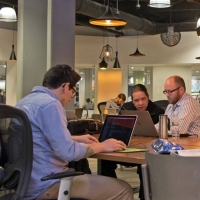June 13, 2023
People now less engaged, less fulfilled and more stressed in their working lives
 New research from the CIPD exploring the quality of UK working lives suggests there has been a negative shift in how people think about and value their work. The CIPD’s Good Work Index 2023 claims that most people like their work and find it satisfying. However, as many as 6-9 million workers, experience poor-quality work in some major respects. CIPD’s survey indicators show that there has been no significant improvement in job quality in the past four years and, in some respects, job quality has gone backwards. Compared to 2019, workers today are less enthused about work, less likely to perceive their work as useful and more likely to simply see work as purely transactional – simply for the money. (more…)
New research from the CIPD exploring the quality of UK working lives suggests there has been a negative shift in how people think about and value their work. The CIPD’s Good Work Index 2023 claims that most people like their work and find it satisfying. However, as many as 6-9 million workers, experience poor-quality work in some major respects. CIPD’s survey indicators show that there has been no significant improvement in job quality in the past four years and, in some respects, job quality has gone backwards. Compared to 2019, workers today are less enthused about work, less likely to perceive their work as useful and more likely to simply see work as purely transactional – simply for the money. (more…)
















 In the latest episode of the Workplace Geeks podcast, one of the world’s leading experts on work and workplace, Kate Lister, focuses on a recent study in collaboration with Owl Labs, ‘State of Remote Work 2022’. The report, in its 6th year, provides a platform for a much broader conversation about hybrid and remote working (spoiler alert: terms which Kate hates by the way), Kate’s invitation to speak during the pandemic to United States Congress about home-working, and GWA’s long standing and freely available ROI and savings calculators. James returns following his blacksmithing course in the Peak District to a new discussion format – no more Pinder Ponder, get ready for the reflection section.
In the latest episode of the Workplace Geeks podcast, one of the world’s leading experts on work and workplace, Kate Lister, focuses on a recent study in collaboration with Owl Labs, ‘State of Remote Work 2022’. The report, in its 6th year, provides a platform for a much broader conversation about hybrid and remote working (spoiler alert: terms which Kate hates by the way), Kate’s invitation to speak during the pandemic to United States Congress about home-working, and GWA’s long standing and freely available ROI and savings calculators. James returns following his blacksmithing course in the Peak District to a new discussion format – no more Pinder Ponder, get ready for the reflection section.















December 22, 2022
How businesses can support employee wellbeing over a difficult festive period
by Louise Aston • Comment, Wellbeing